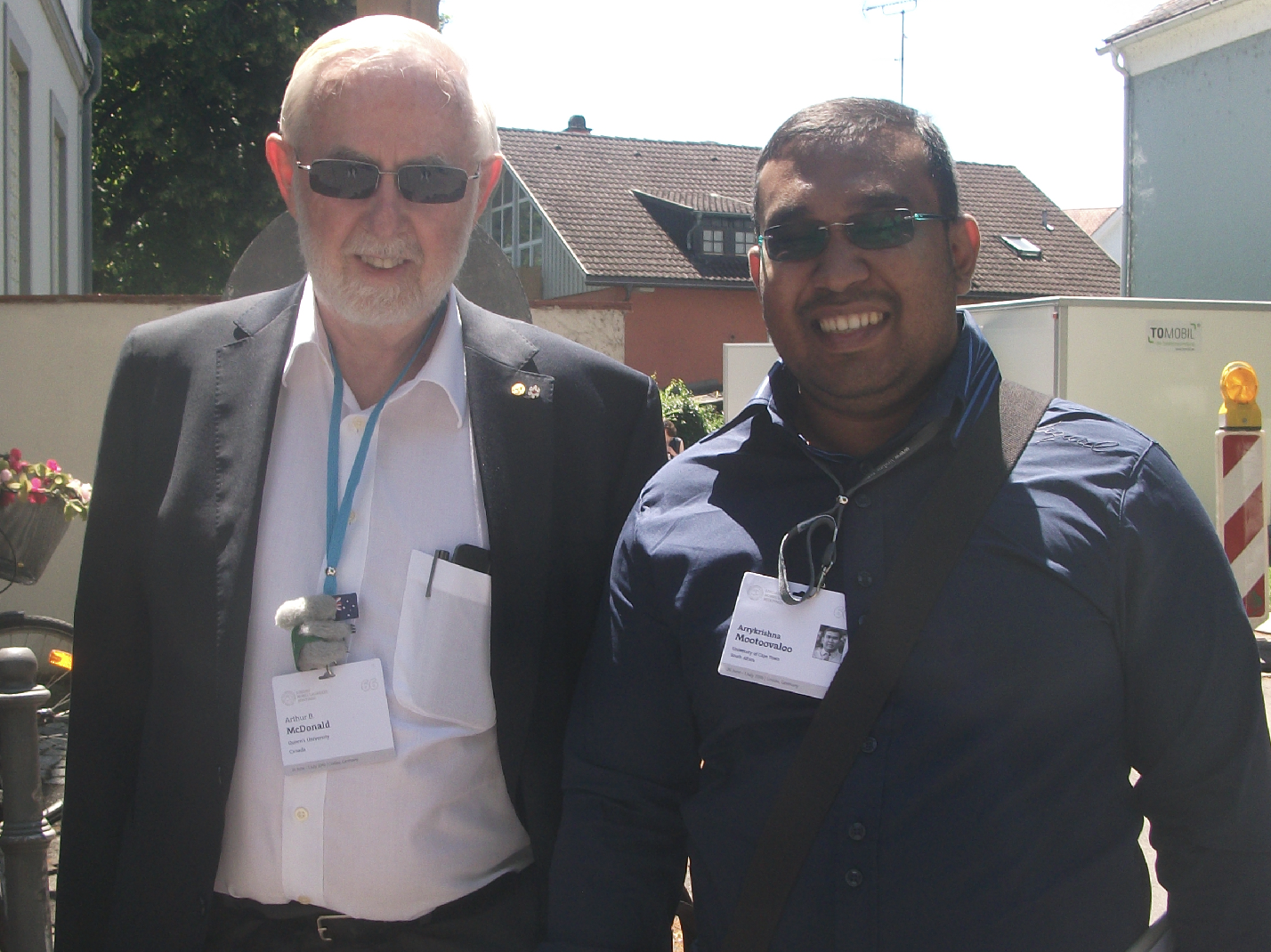Luminary
I have had the opportunity to meet wonderful leaders in their fields at various stages in my life. Below are some pictures taken with these amazing reference points (models), who inevitably pull us into a new way of seeing things, a new possibility.
Prof. Alan Heavens is my PhD supervisor and we first met in the COSMO21 workshop organised in Greece in May 2016 and we met again during the Bayesian School held in Stellenbosch, South Africa in November 2016. Alan's work focuses on the application of Bayesian Statistics to analyse cosmological data. He uses these techniques to extract maximum information from data. He is also the father of the MOPED data compression algorithm which has been used extensively in the cosmology community and this algorithm has been applied in medical image analysis. He has also pioneered other research areas such as 3D weak lensing and Bayesian Hierarchical Models (BHM). I was lucky to work with Alan on a nice project called MCEvidence. The latter enables calculates the evidence of a model, given that we already have MCMC samples.
Vinton Cerf probably needs no introduction. He is regarded as the father of the internet and is currently the vice president and Chief Internet Evangelist for Google. He is the recipient of the Turing award together with Robert Kahn on internetworking in 2004. Recently, he has been pioneering interplanetary internet. This is a challenging procedure because of the finite speed of light but varying and long distances between the transmitter and receiver. Planets are always rotating and therefore point-to-point reception and emission mechanism no longer works. However, interplanetary internet is fundamental for manned missions to other planets. Despite his age and the complex work involved in interplanetary internet, in the Heidelberg lecture series, Vint made a really profound statement by saying, 'I won't live to see the particular end of this project but if you get to start something and be part of it, even if you can't see the end of it, it's really cool and that's how I feel about the internet and it's interplanetary extension'.
I also had the opportunity to briefly chat to Prof. Brian Schmidt. He was awarded the Noble Prize in Physics in 2011, along with Riess and Perlmutter, for their observations which led to the discovery of the accelerating universe. He did his PhD at Harvard University and his PhD thesis was based on the measurement of the Hubble constant using Type II supernovae. He led the High-Z Supernova Search Team to measure the expected deceleration of the universe using Type Ia supernova and unexpectedly, the team discovered that the universe expansion rate is not decelerating but is rather accelerating. Initially, this was thought to be a mistake but this result was confirmed independently by Saul Perlmutter and team, who worked on the Supernova Cosmology Project. Along with his own research, Brian is involved in advocating the essence of Science and to this end, Brian is an avid supporter of public education, scientific and medical research. Moreover, he is also interested in topics related to the climate change crisis.
Arthur is a canadian astrophysics and was awarded the Nobel prize in Physics in 2015 along with Takaaki Kajita for the discovery of neutrino oscillations and demonstrating that neutrinos have mass. He was inspired by his high school teacher and first-year Physics professor to study Physics. He did his PhD in 1969 at the California Institute of Technology. His research focuses on whether neutrinos have mass and to investigate this postulate, heavy water was used as detector for solar neutrinos. Apart from his own research, Arthur has been leading a project to mass produce ventilators at low cost since the COVID-19 pandemic outbreak in 2020. To do so, ideas similar to particle physics experiments are used to meet the requirements of the ventilators. This idea is further supported by the Canadian Prime Minister Justin Trudeau and the ventilators are can be built in less than $1000. On a separate note, we also talked about the possibility of pursuing a PhD at his institution in Canada.


